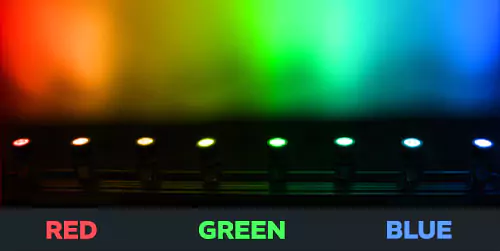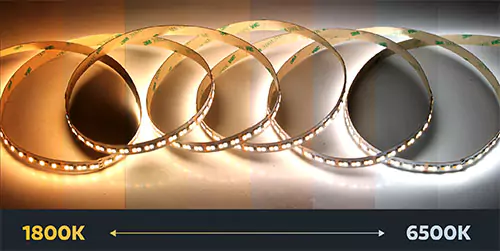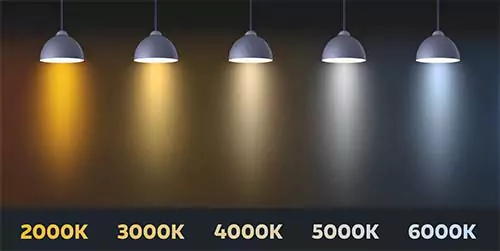Understanding RGB - Standard Color Changing
RGB stands for Red, Green, Blue and are the three additive primary colors that at different brightness and dimming levels with a scale of 0-255 you can create over 16 million color tuning choices. Unlike the primary colors you learned in grade school to mix paint or standard printing colors of CMYK, RGB is a digital format and the way light mixes and creates colors for LEDs, televisions, tablets, and anything with a colored LCD screens. An RGB Controller or 3 Channel DMX Decoder is required to dim and change the colors of your RGB LED lighting.

Related Categories
 Understanding Tunable White - Adjustable Color Temperature
Understanding Tunable White - Adjustable Color Temperature
Tunable White LED Strips lights and low voltage lighting products have an adjustable CCT or Kelvin Temperature. This means that the white output of the light can be changed and adjusted based on a temperature range of the product specifications. These light use three wires and have two different LEDs of both varying color temperatures, for example one set is 1800K and the other is 6000K. Each array of lights can be dimmed separately using a tunable white controller, two PWM dimmers or 2 channels of DMX control. When the two color temperatures are combined at different brightness levels you can create color temperatures within those ranges.
 Understanding Color Temperature (Kelvin) - Static White
Understanding Color Temperature (Kelvin) - Static White
Static White LED lighting is one of our most popular color choices that we sell. It comes in an array of different color temperatures which are measured in Kelvins. Similar to a standard thermometer, the Kelvin scale basically gets warmer or cooler as the color temperature goes up and down. The color of the light output is determined by its placement on the temperature scale, warmer lighting has lower Kelvin rating while cooler temperatures have higher. LED Binning and the Importance of Color Consistency The LED binning process is the way that LED chips are sorted and chosen for use in the manufacturing process. A good binning process ensures that color temperatures will be the same each time the LED lighting is produced. Our trusted manufacturers use only the highest standards when creating our LED strips and lighting. SDCM(standard deviation of color matching) within three-step, IES60081:2010 standard, within the MacAdam eclipse which is stricter than ANSI recommendation tl stay within a four-step ellipse.

